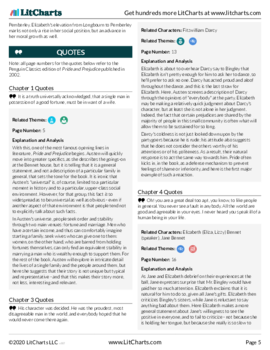- All's Well That Ends Well
- Antony and Cleopatra
- As You Like It
- The Comedy of Errors
- Coriolanus
- Cymbeline
- Hamlet
- Henry IV, Part 1
- Henry IV, Part 2
- Henry V
- Henry VI, Part 1
- Henry VI, Part 2
- Henry VI, Part 3
- Henry VIII
- Julius Caesar
- King John
- King Lear
- Love's Labor's Lost
- A Lover's Complaint
- Macbeth
- Measure for Measure
- The Merchant of Venice
- The Merry Wives of Windsor
- A Midsummer Night's Dream
- Much Ado About Nothing
- Othello
- Pericles
- The Rape of Lucrece
- Richard II
- Richard III
- Romeo and Juliet
- Shakespeare's Sonnets
- The Taming of the Shrew
- The Tempest
- Timon of Athens
- Titus Andronicus
- Troilus and Cressida
- Twelfth Night
- The Two Gentlemen of Verona
- Venus and Adonis
- The Winter's Tale
plus so much more...
-
Imagery
The poem's grim imagery depicts the exhausting day-to-day sufferings the poor have to navigate. Many of these have to do with simple, constant discomfort.
In the winter, for instance, "the wind rushes through the gaping walls" of the poor's cottages—an image that suggests just how little protection those cracked walls offer, and also subtly suggests that the cottages themselves might seem to gape in helpless horror at what's happening within them. Inside, the speaker observes children "with hunger pinched and cold." Here, the children might be "pinched" in the sense of "gaunt and skinny"—but they also might feel as if hunger and cold are actually pinching them, like mean little elves.
Their parents don't have it much easier. Trying to escape their sufferings in sleep, they find that a "tattered blanket" crawling with fleas doesn’t provide much in the way of warmth, and end up lying awake all night on a "dusty pillow." These images conjure up a bed that offers no rest: here, even the place that should provide "soft repose" is only another small daily torture chamber.
Things get even worse if someone in the family gets sick, the speaker continues—personifying sickness itself as "pale sickness," like a thin-cheeked horseman of the apocalypse. Without the help of a doctor, the poor are helplessly condemned to lie "in a dark room," the living and the dying cooped up in the same "miserable bed." This shadowy moment suggests that the poor die in the dark in more ways than one: their "dark room" also gestures to the way the rest of society shuts these suffering people out of their minds.
Should a poor person survive all these miseries, the speaker observes, they can't exactly look forward to a cheerful, thriving old age. As soon as they can't work anymore, old men whose "rev'rend hoar" (that is, respectable grey heads) should be settled in an armchair somewhere instead find themselves begging on the road, limping along with "halting pace," wearing a "tattered dress of various rags," their "meagre," scrawny cheeks hidden beneath an unkempt and "formidable beard."
The speaker's vision of this frail old beggar—particularly that "formidable beard," a vivid image of involuntary self-neglect—is designed to evoke pity. But pity, the speaker says again and again, is precisely what better-off people can't seem to find it in their hearts to offer their suffering neighbors.

|
PDF downloads of all 3052 of our lit guides, poetry guides, Shakescleare translations, and literary terms.
PDF downloads of all 1909 LitCharts literature guides, and of every new one we publish.
Learn more
|

|
Explanations for every quote we cover.
Detailed quotes explanations (and citation info) for every important quote on the site.
Learn more
|

|
Instant PDF downloads of 136 literary devices and terms.
Definitions and examples for 136 literary devices and terms. Instant PDF downloads.
Learn more
|

|
Compare and contrast related themes.
Compare and contrast Related Themes across different books.
Learn more
|

|
Teacher Editions for all 1909 titles we cover.
LitCharts Teacher Editions for every title we cover.
Learn more
|

|
PDFs of modern translations of every Shakespeare play and poem.
PDFs of modern translations of every Shakespeare play and poem.
Learn more
|

|
Advanced search across our collection.
Advanced Search. Find themes, quotes, symbols, and characters across our collection.
Learn more
|

|
Line-by-line explanations, plus analysis of poetic devices for lyric poems we cover.
Line-by-line explanations, plus analysis of poetic devices for every lyric poem we cover.
Learn more
|


For every lyric poem we cover.



Literature Guide PDFs
LitCharts PDFs for every book you'll read this year.



Quotes Explanations
For all 42,208 quotes we cover.





Teacher Editions
Time saved for teachers.
For every book we cover.
Common Core-aligned



PDFs of modern translations of every one of Shakespeare's 37 plays, 154 sonnets, and 3 longer poems.


Plus a quick-reference PDF with concise definitions of all 136 terms in one place.





















